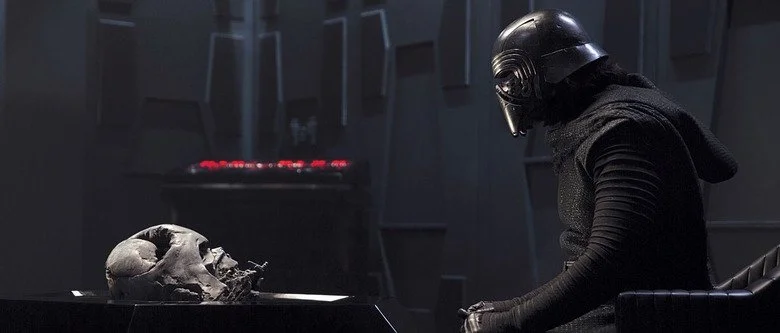Taking Fathers Seriously: Against the "Lovable Goofball" Father Archetype
Depictions of Fathers in Father’s Day Commercials
Today is Father’s Day. Although I do not have any natural-born children of my own, this is my second Father’s Day as a functional stepparent to my soon-to-be stepdaughter. While my girlfriend Hayley and I were watching television the other night, I saw a television commercial in praise of fathers in preparation for Father’s Day. Something disturbed me about this particular commercial, however: the fathers in the commercial were all depicted as lovable goofballs, essentially big kids themselves, horsing around and acting as childish as their kids, and arguably just as much still in need of parenting themselves.
A search on YouTube for “Father’s Day Commercials” yielded countless examples of depictions of fathers as lovable goofballs, adorable perhaps with their children but hardly able to be taken seriously. Although I couldn’t find the specific commercial that prompted this search in the first place on YouTube, here are just a couple of typical examples I found of the way in which fathers are commonly depicted as lovable goofballs:
DAD ON: Dove Men+Care (2020, dovemencareus)
Star Wars Father’s Day Commercial 2020 (2020, EB Games Canada)
(Typical image of a lovable-goofball father)
The “Lovable Goofball” Father Archetype
It occurred to me that the father-as-lovable-goofball has become a type of modern father archetype. Instead of viewing fathers as older, wiser, sage-like fountains of wisdom and experience, we now infantilize fathers and view them essentially as grown-up kids, still young at heart and able to relate to the childlike behavior of their children, perhaps, but essentially bumbling their way through life like Homer Simpson in the long-running animated television series The Simpsons. Even the well-known phrase “dad joke” connotes the image of a father as a grown-up jokester who likes to clown around.
It strikes me that the link between fatherhood and wisdom should be at least as strong as the seemingly omnipresent link between fatherhood and sports, judging by the countless depictions of fathers as sports fans in the various Father’s Day commercials I’ve been seeing on television this year. In any case, something seems to have been lost in the modern father archetype that was valuable culturally and historically. But is this wise-sage father archetype lost forever in favor of the lovable-goofball father archetype?
Homer Simpson, from the animated television series The Simpsons, is arguably the prototype of the modern father-as-lovable-goofball.
My Own Father and Grandfathers
Although my own father, George A. Fruhling can be as funny as any intelligent person could ever hope to be, I would never have thought of, or described, my own father as a “lovable goofball.” My dad has always had an air of gravitas about him, even in his most comedic moments. His father, my grandfather, Arthur F. Fruhling, was a longtime minister (43 years) in my hometown of Vacaville, California. And although my dad has always said that my grandfather had a witty, sharp, dry sense of humor, it seems unquestionable to me that everyone, from the local community to his own family, viewed him with respect and as a truly wise individual to be taken seriously, even in the most casual and lighthearted of times.
My maternal grandfather, Roger E. Forssell, likewise always carried himself with gravitas, even in his lighter moments, both as a veteran (a B-24 bomber pilot with the 380th Bomb Group during World War II) and as a giver of practical sage advice, about which I have written about previously in the following post:
My Father: George A. Fruhling
(George A. Fruhling with son Zachary R. Fruhling, June 25, 2011)
My Grandfathers: Arthur. F. Fruhling and Roger E. Forssell
Rescuing the Father Archetype
Perhaps this shift in the father archetype from wise old sage to lovable goofball occurred because an entire generation of people grew up without strong fatherly role models in the first place. A whole generation of latchkey kids had little parental influence. So perhaps it’s no wonder that those kids grew up with a stunted view of fatherhood, not having had any wise-father role models to look up to. Or perhaps many women, possibly because of issues with their own fathers, are somehow drawn to men who are young at heart, only to find out that those men aren’t really able to grow up in the context of modern family life. Whatever the reason, I can’t imagine that most women truthfully find the archetype of father-as-lovable-goofball very attractive or appealing in the long run. Who, after all, wants to be in a relationship with what is essentially a barely-grown-up man-child?
So how do we reclaim the archetype of fatherhood and bring back the notion of fathers as wise old sages passing down the wisdom of the ages, which was handed to them by their fathers and which they will pass on to their own children in turn? How do we begin, once again, taking fathers seriously?—more Jason Seaver than Homer Simpson, to use an outdated 1980s television fatherhood reference. More importantly, though, how do we go about getting fathers to take themselves seriously, to view themselves as fully grown-up individuals with an endless fountain of wisdom instead of merely as playmates for their own children? How do we get fathers to care as much about their children’s intellectual and character development as about their sporting achievements and game times? How do we get a generation of fathers who never grew up in the first place to grow up and claim their birthright as the inheritors of the wisdom of the great fathers and grandfathers who came before them, when they themselves had, and still have, no great father role models to look to?
Conclusion: My Challenge for Fathers
Perhaps I’m doing a disservice to all the lovable-goofball fathers out there, and to the warm feelings their partners and children must have for them. But, to me, something seems seriously lacking in this depiction and conception of fatherhood. Today’s fathers lack gravitas and wisdom, and so it’s little wonder they aren’t taken seriously, by society, by their partners, or even by their own children.
There are, of course, many wise fathers out there. I’d like to think I’m becoming one of them as I take on the role of stepfather at this middle stage of life, even as I bring the full force of my own sense of humor into the role as well, which I likely also inherited from my father and grandfathers, whether by genetics or by example.
If you yourself are a self-acknowledged lovable-goofball father, I challenge you to do better and to leave not merely a legacy of fun for your children, but a legacy of wisdom, temperance, and strength of character for them to look to throughout the rest of their lives as well, even when you are dead and gone.













